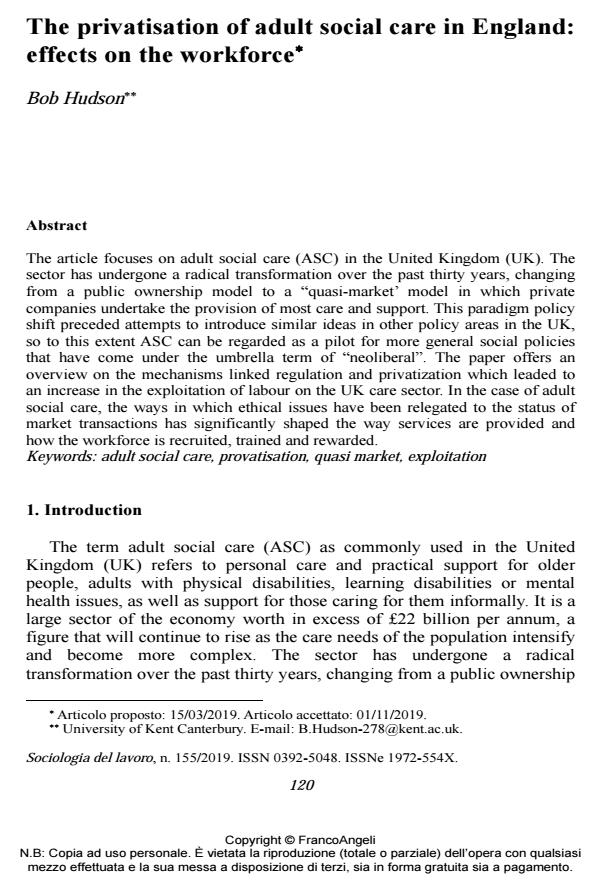The privatisation of adult social care in England: effects on the workforce
Journal title SOCIOLOGIA DEL LAVORO
Author/s Bob Hudson
Publishing Year 2019 Issue 2019/155
Language English Pages 17 P. 120-136 File size 222 KB
DOI 10.3280/SL2019-155006
DOI is like a bar code for intellectual property: to have more infomation
click here
Below, you can see the article first page
If you want to buy this article in PDF format, you can do it, following the instructions to buy download credits

FrancoAngeli is member of Publishers International Linking Association, Inc (PILA), a not-for-profit association which run the CrossRef service enabling links to and from online scholarly content.
The article focuses on adult social care (ASC) in the United Kingdom (UK). The sector has undergone a radical transformation over the past thirty years, changing from a public ownership model to a "quasi-market’ model in which private companies undertake the provision of most care and support. This paradigm policy shift preceded attempts to introduce similar ideas in other policy areas in the UK, so to this extent ASC can be regarded as a pilot for more general social policies that have come under the umbrella term of "neoliberal". The paper offers an overview on the mechanisms linked regulation and privatization which leaded to an increase in the exploitation of labour on the UK care sector. In the case of adult social care, the ways in which ethical issues have been relegated to the status of market transactions has significantly shaped the way services are provided and how the workforce is recruited, trained and rewarded.
Keywords: Adult social care, provatisation, quasi market, exploitation
Bob Hudson, The privatisation of adult social care in England: effects on the workforce in "SOCIOLOGIA DEL LAVORO " 155/2019, pp 120-136, DOI: 10.3280/SL2019-155006